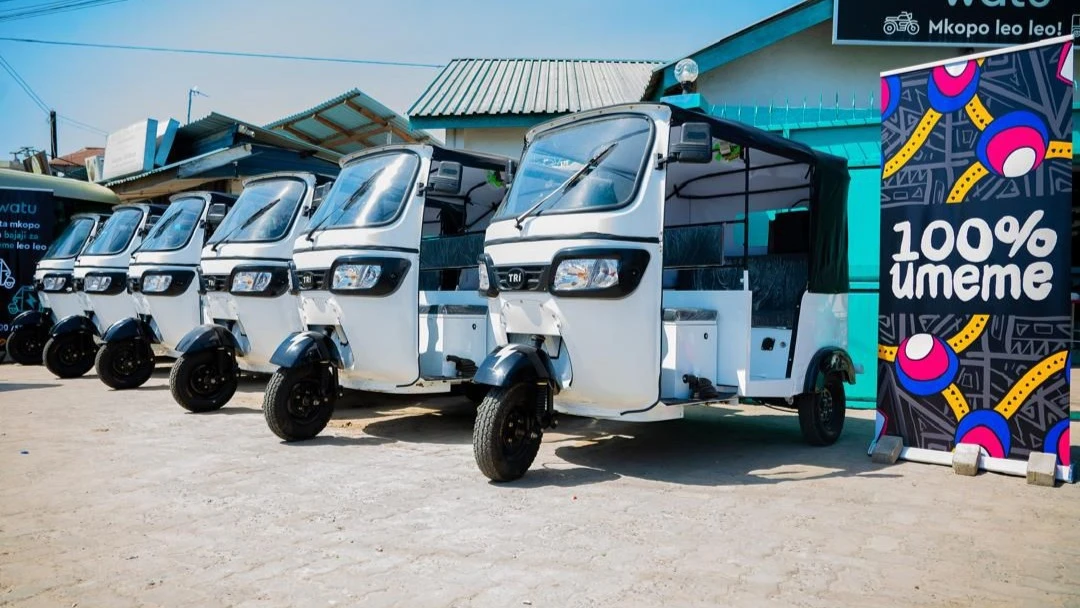TRí, Watu Credit, and Bolt have partnered for an innovative pilot project with electric Bajajis.
This initiative seamlessly integrates with Bolt’s ride-hailing services, provides accessible financing options, and introduces the E2 electric three-wheelers, marking a significant step toward eco-friendly transportation.
Today marks the beginning of the pilot with 25 electric Bajajis that, for starters, open new hopes for less emission problems in the future.
Read also: Kenya unveils groundbreaking green mobility policy
What Makes Bolt, TRÍ, and Watu Bajajis Eco-Friendly?
-Watu Credit: Watu Credit, with its easy-to-access financial services, avails the cream of Bajaj sales to more and more Tanzanians. It makes owning an electric Bajaj pocket-friendly by offering flexible payment schemes at the lowest interest rates and low down payments.
– Bolt: Its far-reaching network of ride-hailing services guarantees the high acceptance level of Bajaj Electric. It is a platform for drivers to apply its services, and it provides passengers with reliable and environmentally friendly means of transport.
These large networks and the acquired technological know-how that Bolt has are significant success factors for this pilot project.
– TRí: We will involve E2, an electric three-wheeler manufacturer, given that it would be essential for the attainment of technology in the electronic vehicle industry.
Their E2 models have no emission, less operational cost to run, and less maintenance cost compared to operating Bajajis that rely on petrol; know that their framework also delivers a smooth driving experience with comfort and satisfaction to both the driver and his passengers.
In the first phase, it shall put at least 25 electric Bajajis on the road across some of Tanzania’s major cities. It’s almost like a test drive, providing partners with valuable data that can encapsulate many issues.
The idea is to understand the vehicle’s performance, the user experience around it, and the whole operational logistics. This will help scale the program, grow the number of cars, or even penetrate new areas.
Read also: Kenya’s booming EV sector faces threat from new taxes
What Are the Benefits of Owning an Electric Bajajis?
Switching to electric Bajajis will save the environment and reduce the emission of gases that are harmful to the atmosphere. The operators will also work at a lower price, hence attaining increased earnings.
This pilot is woven into quality life, economic advancement, and transport sustenance. It sets a precedent for other countries to understand the potential of more comprehensive, regional adoption of electric vehicles.
The electric three-wheelers introduced by Watu Credit, Bolt, and TRî are a giant step toward sustainable urban mobility in Tanzania because they will be cleaner, greener, and more efficient.




